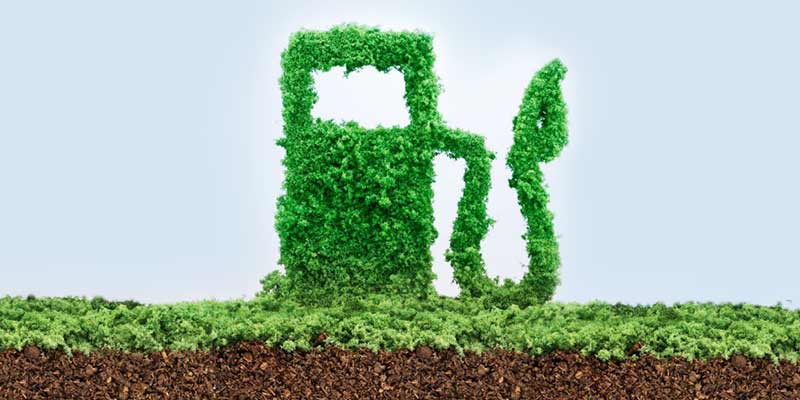- India
- Jun 06
India achieves target of 10% ethanol blending
• India has achieved the target of supplying 10 per cent ethanol blended petrol five months ahead of schedule and is aiming to double the blend by 2025-26 in order to cut oil import dependence and address environmental issues.
• The original target for doping 10 per cent ethanol, extracted from sugarcane and other agri commodities, in petrol originally was November 2022.
• This has been achieved in June due to tremendous effort by state-owned fuel retailers Indian Oil Corporation (IOC), Bharat Petroleum Corporation Ltd (BPCL) and Hindustan Petroleum Corporation Ltd (HPCL).
• This translates into a forex impact of over Rs 41,500 crore, reduced greenhouse gas (GHG) emissions of 27 lakh tonnes and has also led to the expeditious payment of over Rs 40,600 crore to farmers.
• Oil Marketing Companies (OMCs) set up some ethanol production units and offered long-term procurement contracts to ethanol suppliers to give them assurity of business.
• OMCs started blending ethanol in petrol on a pilot basis in 2006. The blend then was up to 5 per cent in sugar surplus states. Availability of ethanol was a constraint and steps taken thereafter have improved supplies.
• During the current ethanol supply year (December 2021 to November 2022), the availability to OMCs is likely to touch 450 crore litres.
• As the availability of ethanol increases, the equivalent amount of crude (used for petrol production) import is reduced.
• The government of India, with the aim to enhance India’s energy security, reduce import dependency on fuel, save foreign exchange, address environmental issues and give a boost to the domestic agriculture sector, has been promoting the Ethanol Blended Petrol (EBP) Programme.
• It has advanced the nation’s target of making petrol with 20 per cent ethanol by five years to 2025 in a move that's expected to save $4 billion annually.
• This increased blending will expand the use of renewable energy in the world’s third-biggest oil importer and help turn the nation's surplus rice and damaged foodgrains into ethanol.
Ethanol blending
• The energy demand in our country is rising due to an expanding economy, growing population, increasing urbanisation, evolving lifestyles and rising spending power. About 98 per cent of the fuel requirement in the road transportation sector is currently met by fossil fuels and the remaining 2 per cent by biofuels. Today, India imports 85 per cent of its oil requirement.
• Domestic biofuels provide a strategic opportunity to the country, as they reduce the nation’s dependence on imported fossil fuels. In addition, when utilised with appropriate care, biofuels can be environmentally friendly, sustainable energy sources. They can also help generate employment, promote ‘Make in India’, Swachh Bharat, doubling of farmers’ incomes and promote waste-to-wealth generation.
• India is the world’s fifth largest producer of ethanol after the US, Brazil, EU and China.
• Ethanol worldwide is largely used for consumption but nations like Brazil and India also dope it in petrol.
• Ethanol is one of the principal biofuels, which is naturally produced by the fermentation of sugar by yeast or via petrochemical processes such as ethylene hydration. It has medical applications as an anti-septic and disinfectant. It is used as a chemical solvent and in the synthesis of organic compounds, apart from being an alternative fuel source. It is an agro-based product, mainly produced from a by-product of the sugar industry, namely molasses.
• Ethanol blending offers significant advantages such as increase in Research Octane Number (RON) of the blend, fuel embedded oxygen and higher flame speed. These properties of ethanol help in complete combustion and reduce vehicular emissions such as hydrocarbon, carbon monoxide and particulate matter.
• The government launched Ethanol Blended Petrol (EBP) Programme in 2003 for undertaking blending of ethanol in petrol to address environmental concerns due to fossil fuel burning, provide remuneration to farmers, subsidize crude imports and achieve forex savings.
• Blending locally produced ethanol with petrol will help India strengthen its energy security, enable local enterprises and farmers to participate in the energy economy and reduce vehicular emissions.
• The government has promoted usage of biofuel in the country by notification of the National Policy on Biofuels (NPB), 2018 which allows use of multiple feedstocks for producing bio-ethanol for increased supply of ethanol for blending with petrol.
• With the vision to boost agricultural economy, reduce dependence on imported fossil fuel, save foreign exchange on account of crude oil import bill and reduce air pollution.
Manorama Yearbook app is now available on Google Play Store and iOS App Store

